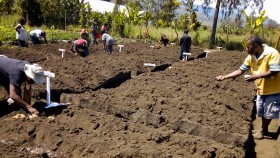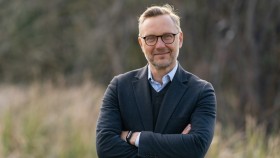Working towards Climate Justice with the Master of Climate Change
With several years’ experience working for environmental and sustainable development NGO’s in her native Vietnam, Quynh Trinh is very aware of her home country’s exposure and vulnerability to the impacts of climate change.
“That’s why I decided to study climate change - to support my communities, businesses, and the vulnerable in their mitigation and adaptation efforts,” she said.
Having just graduated from the Master of Climate Change program at the end of 2021, Quynh thinks back to the time when she first made the decision to apply for the program.
“When I read the program structure, I was excited because this was what I was looking for. The program provided me with core knowledge on environmental management and climate change, and the flexibility to design the learning in accordance with my preferred topic, which is the intersection between climate science and development.”
In addition to the core units of the Master’s program, Quynh completed elective courses about climate change vulnerability and adaptation, communication of climate policies, disaster risk reduction and environmental resource management, to name a few. She also completed a research project which investigated the sustainability of rice-shrimp farming in the Mekong Delta, and how it is impacted by climate change.
Whilst reflecting on the key learnings that she will take from the program into her future career, Quynh is philosophical.
“Successfully addressing climate change requires trust and cooperation between countries in relation to many factors. Vulnerable populations deserve more support to overcome their exposure to climate damages. In supporting them, we are making climate adaptation more just and equal,” she said.
Quynh is very positive about the quality of her experience at ANU.
“I love the way lecturers deliver classes and facilitate discussions – they are very knowledgeable, open-minded and engaging with students. They also provided extra care and attention when the COVID pandemic required a change to online learning,” she said.
Quynh also welcomed the diversity of people within her student cohort.
“I enjoyed discussions with fellow students – as we come from different backgrounds and bring to the table unique insights on climate change, they were a good chance to learn from each other.”
With her Master’s program now completed, Quynh is dedicated to using her newly acquired knowledge to make a positive impact.
“I want to be an active professional and advocate for pro-climate policies. I enjoy interacting with different stakeholders, so I am keen to be a bridging actor between communities, the private sector and the public sector to collaboratively find solutions to climate challenges.”
To find out more about the Master of Climate Change program, please visit the Programs and Courses page.











